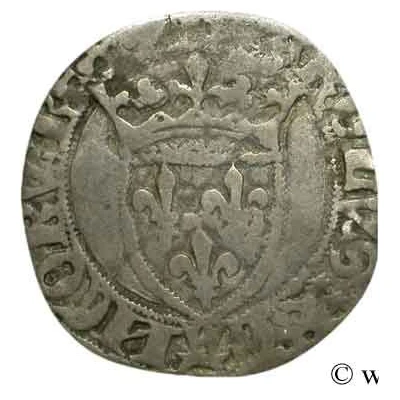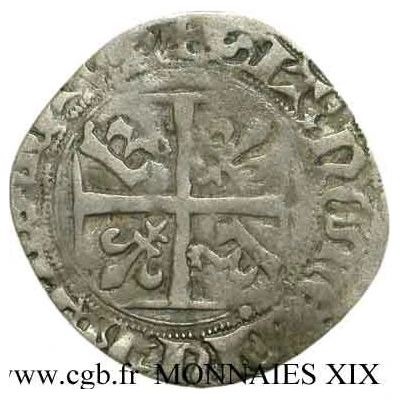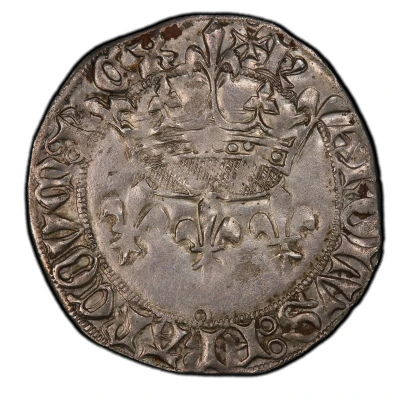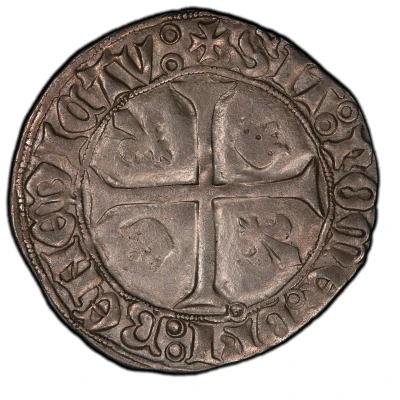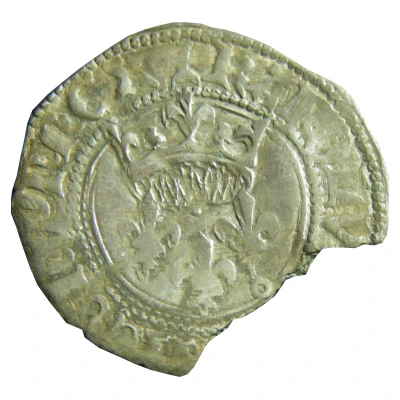
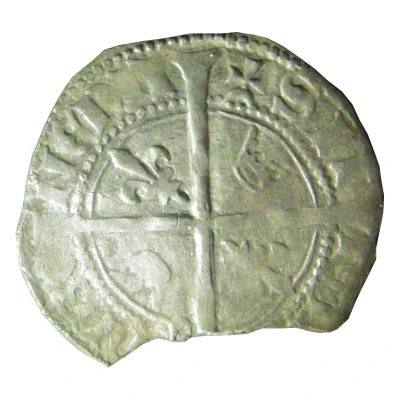

© SanglierFSE
Blanc - Charles VII ND
| Billon (.358 silver) | 3 g | 26 mm |
| Issuer | France |
|---|---|
| King | Charles VII (1422-1461) |
| Type | Standard circulation coin |
| Years | 1426-1429 |
| Value | 1 Douzain (1⁄20 LT) |
| Currency | Livre tournois (1204-1795) |
| Composition | Billon (.358 silver) |
| Weight | 3 g |
| Diameter | 26 mm |
| Shape | Round (irregular) |
| Technique | Hammered |
| Orientation | Coin alignment ↑↓ |
| Demonetized | Yes |
| Updated | 2024-10-04 |
| Numista | N#56727 |
|---|---|
| Rarity index | 90% |
Reverse
Cross intersecting the legend, cantoned at 1 and 4 with a lily, at 2 and 3 with a crown.
Lettering: + SIT - nOmE - DnI BE - NEDIT .
Comment
Description and legends noted (for all issues):A/ +KAROLVS FRANCORVm REX, three fleurs-de-lis in two and one, under a wreath
A/ +KAROLVS FRANCORV REX
A/ +KAROLVS FRNCORVm REX
R/ +SIT nOmE DnI BENEDICTV, cross intersecting the legends, cantoned by two lilies and two coronets
R/ +SIT nOmE DnI BENEDICT
R/ +SIT nOmE DnI BENEDITV
R/ +SIT nOmE DnI BENEDIT
R/ +SIT nOmE DnI BENEDI
R/ +SIT nOmE DnI BENED
R/ +SIT nOmE DnI BENEDTV
R/ +SIT nOmE DnI BENEDT
R/ +SIT nOm DnI BENEDITV
R/ +SIT nOm DnI BENEDTV
Raised punctuations:
- three superimposed dots
- two superimposed stars
- two dots
- two rings
- two pointed rings
- two superimposed saltires
- two overlapping shamrocks
- one star
- small rose
- one point
- a shamrock
This beautiful site provides an overview and additional information on the issuing workshops, as well as other Charles VII coins: http://numismatique-de-charles-vii.wifeo.com/le-blanc-dit-florette.php
Interesting fact
One interesting fact about the Standard circulation coin Blanc - Charles VII ND (1426-1429) from France made of Billon (.358 silver) weighing 3 g is that it was minted during a time of great economic and political change in France. The coin was issued during the reign of Charles VII, who was known for his efforts to centralize power and reform the French economy. The use of billon, a silver-copper alloy, was a common practice during this time period, as it was a more affordable alternative to pure silver. Despite its relatively low value, this coin is still a valuable piece of history and a fascinating artifact for collectors and historians.
